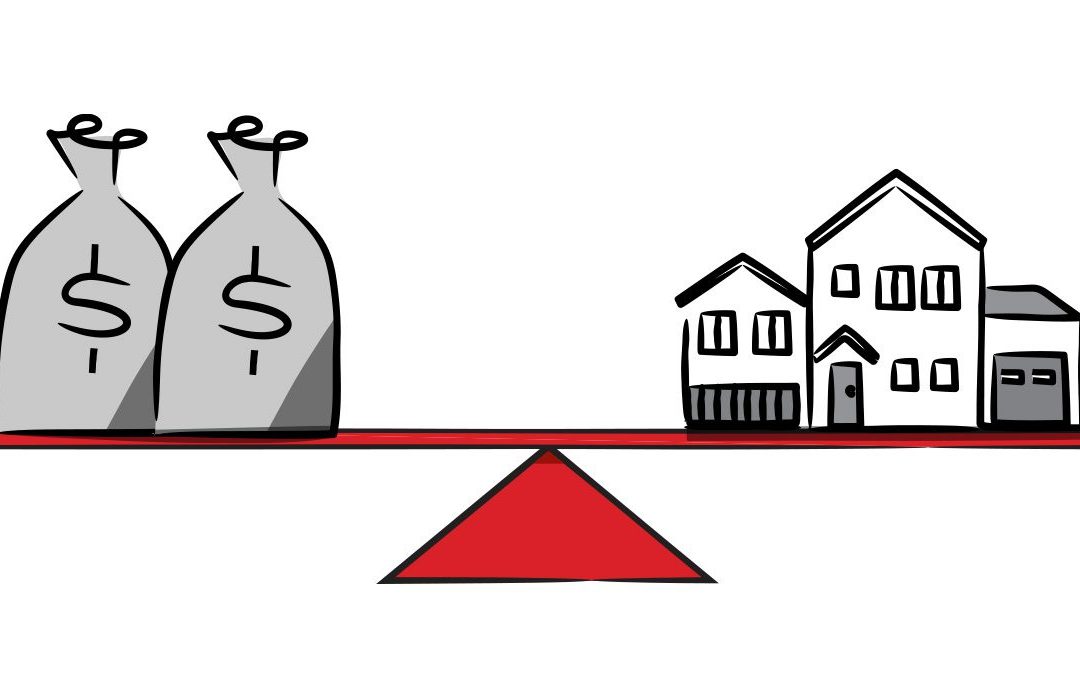What Is Loan to Value Ratio? It’s the Key to Getting a Good Mortgage: MABA Massachusetts RealEstate HomeOwener
The loan to value ratio (LTV) is a crucial factor if you’re buying a home and applying for a mortgage. So what exactly is this loan to value ratio, or LTV? An LTV ratio is simply the amount of money you borrow from your lender, divided by the purchase price of the home, and expressed as a percentage. For example, let’s say the home you have your eye on is worth two hundred and fifty thousand dollars, and you plan to make a down payment of twenty percent of the home’s price, or fifty thousand dollars. That would mean you need a loan amount of two hundred thousand dollars.
That would also mean your LTV ratio would be two huindred thousand/two hundred and fifty thousand dollars equal to zero point eight, or eighty percent. The whole loan to value conversation may still seem confusing, so hang with us. You’re about to become an LTV expert, so get ready to dazzle your friends with a little loan-to-value brilliance.
Why the loan-to-value ratio matters
Lenders use LTV ratios to determine the risk level they face loaning money to a prospective client. The higher a client’s LTV, the greater the odds are deemed to be that this borrower might stop paying the monthly mortgage fees and default on the loan. This could spell less favorable mortgage terms and interest rates for a hopeful home buyer, which is why the LTV ratio is such an important figure. It’s not the only factor involved, though. Credit scores are also considered when it comes time to calculate a mortgage rate. “Borrowers who have a higher loan-to-value ratio are considered more risky to lenders, because they have less equity in their homes,” explains Keith Gumbinger, vice president of HSH.com, a mortgage information resource.
In other words, that lack of home equity translates to less skin in the game. For instance: Let’s say you make a down payment of only ten percent, or twenty five thousand dollars, on that home worth two hundred and fifty thousand dollars. That would mean you need a loan amount of two hundred and twenty five thousand dollars, which would also mean your loan to value ratio would be two hundred and twenty five thousand/two hundred and fifty thousand dollars equal to point nine, or ninety percent. Most conventional private lenders like banks require that borrowers have an LTV ratio of eighty percent (or lower) before they approve a loan.
This effectively means that the buyers need to make a twenty percent down payment. Home buyers with a higher LTV (and lower down payment) often first time home buyers or those with credit-score issues may be deemed too risky and be denied a mortgage. Alternatively, lenders might approve the loan for a high-LTV client, but at a higher interest rate (more risk, more reward). They also might require that the buyer purchase private mortgage insurance (PMI) to cover the lender should the borrower default. PMI is typically required for conventional loans with down payments of less than twenty percent. Just be aware: If you’re a high-LTV client, private mortgage insurance will almost certainly be mandatory. It’s not the end of the world; keep in mind that there are still ways to outsmart your LTV ratio.
How to lower your loan-to-value ratio
There are two ways to lower your loan to value ratio to get good terms on a home loan. That’s right your LTV ratio is not set in stone. The first is to make a larger down payment. At least twenty percent will generally lower your LTV to within a range found to be desirable by mortgage lenders. The other strategy for rehabbing your ratio, of course, is to buy a cheaper house to achieve a more favorable LTV. So, if you have only twenty five thousand dollars for a down payment, buy a home worth one hundred and fift thousand dollars.
That would mean your mortgage amount would be one hundred and twenty five thousand dollars, and that your LTV would be one hundred and twenty five thousand/one hundred and fifty thousand dollars equal to zero point eighty three, or eighty three percent. When in doubt, talk to a lender or Realtor® to discuss your options. Ideally, this should be before you start house hunting and seeing if you can get pre-approved. This way, you will know what’s within your budget and where you fall on the LTV spectrum. The loan-to-value calculation is a crucial one in the home-buying process, so it makes sense to head into the home-buying process fully educated about your LTV ratio. You can also crunch the numbers with this mortgage calculator.
—————
Watch: What Your Mortgage Broker Wishes You Knew
The post What Is Loan to Value Ratio? It’s the Key to Getting a Good Mortgage appeared first on Real Estate News & Insights | realtor.com®.
First Time Home Buying in Massachusetts
 MABA Buyer Agents help first time home buyers reduce the stress and frustration normally associated with buying a home or condo – especially for first time home buyers.
MABA Buyer Agents help first time home buyers reduce the stress and frustration normally associated with buying a home or condo – especially for first time home buyers.
As a first time homebuyer in Massachusetts, you can turn to our non-profit organization to help you understand and navigate the complexities of the entire Massachusetts real estate transaction, from mortgage pre-approval until you are handed the keys to your new home or condominium. Each of our member buyer's brokers and agents works only for their buyer-clients and never for the seller of the home or condo that their buyers want to buy.
MABA Buyer Agents will take the time to learn about you and your real estate goals, help you understand your options, including first time home buyer programs, properties and/or condominium associations, estimate real property values and put together a negotiating strategy to help you increase the odds of getting your offer accepted in our competitive Massachusetts real estate market. After advocating to get your offer accepted, your MABA buyer's agent will be there for you at your home inspection and help you protect your deposit through the inspection, purchase & sale and financing contingency periods.
You can buy your first home or condo with confidence knowing that your MABA buyer agent is committed to saving you time and money and helping you make your best home buying decision.
Buyer Agency in Massachusetts Explained in this must see video:
"Thanks to our MABA agent's knowledge, analysis, and guidance, when we found our house, we knew it was the house for us. During the negotiation, we felt confident and secure."
Article From: "Daniel Bortz" Read full article
Get Started with MABA
For no extra cost, let a MABA buyer agent protect your interests



